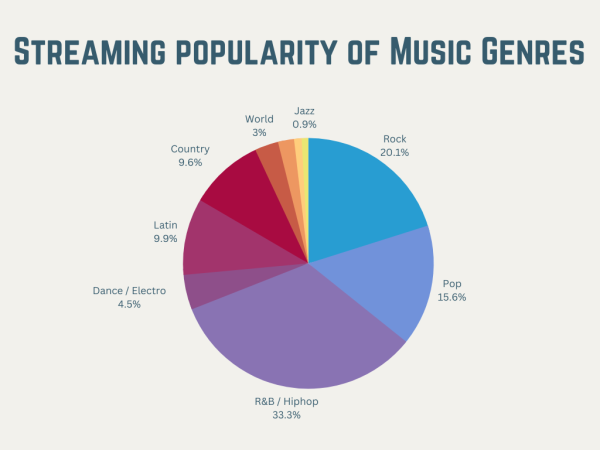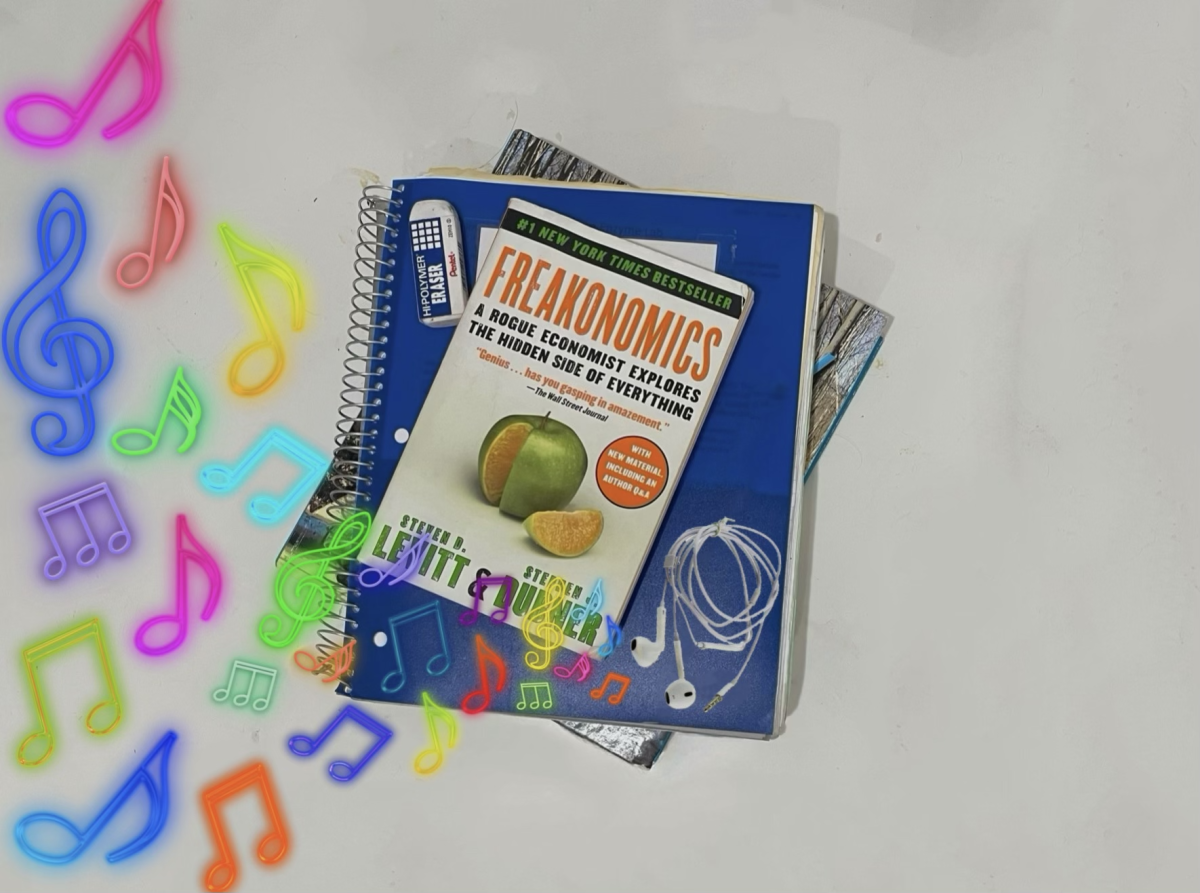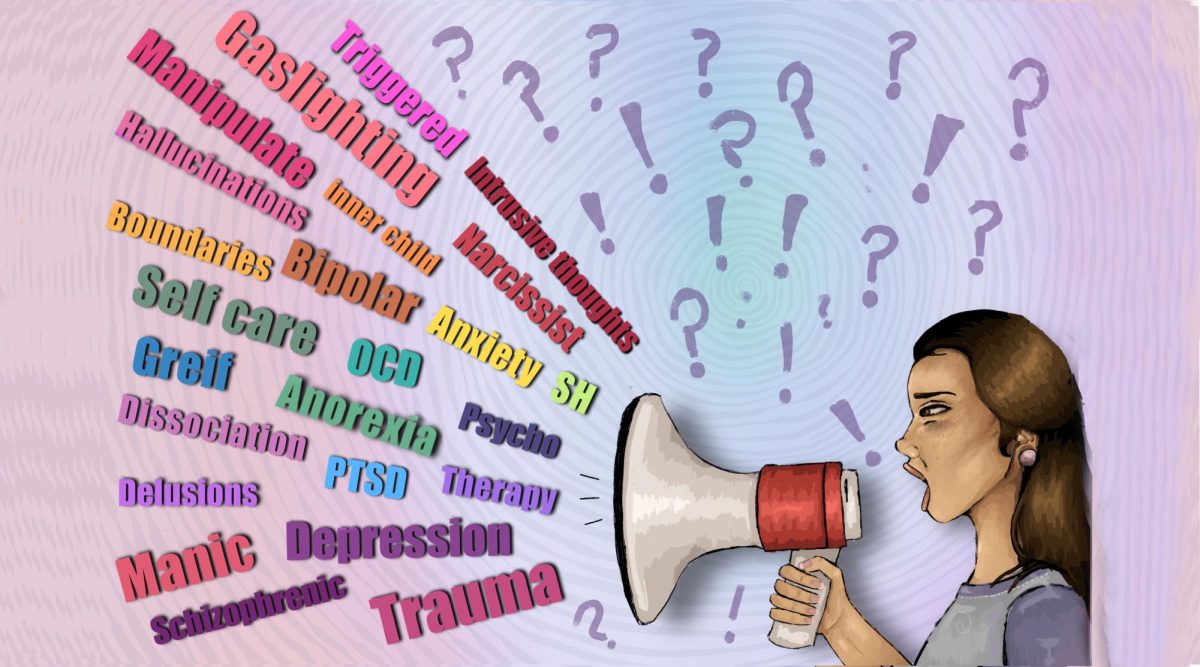A library is buzzing with both students and adults fulfilling their daily to-do list of tasks. An older man is listening to some light jazz as he opens up a new book. A student a few tables over listens to her indie rock playlist as she tries to finish an essay. According to Cloud Cover Media, 80% of people surveyed believe music increases their productivity, but is it actually beneficial to these individuals and their efficiency?
Music is an essential part of day-to-day life. People listen to music for a whole host of reasons, from energizing them on their morning run to relaxing as they’re going to sleep at night. It can influence your mood and state of mind, but are certain types of music beneficial for certain goals?
According to Scientific American, when someone listens to music, it enters their ear canals and goes to the auditory complex, located in the temporal lobe of the brain.
According to Pfizer, listening to or even making music can increase your blood flow to other regions of the brain, such as the limbic system. The limbic system is responsible for emotion processing and memory, so this explains why music seems to have a noticeable effect on our mood.
If you begin to feel a chill-like sensation during a certain song, that is an indicator of dopamine release. Dopamine is a neurotransmitter that is correlated with feelings of pleasure and well-being. According to The Impact of Music on Task Performance at Work, music not only has an effect on mood, but additionally mood, arousal, enjoyment, and attention.
Robert Woody is a professor of music psychology and music education at the University of Nebraska, Lincoln. He is the author of the book Psychology for Musicians (2nd Edition) and is a blogger for Psychology Today.
“Listening to music has been shown to enhance a wide range of human activities. This includes enhanced performance in physical exercise and safer driving; for example, less aggressive and error-prone,” Woody said.
There have been studies on music and the completion of cognitive tasks. Past findings suggest music aids in brain performance in selective areas of the brain, one being the motor cortex, even aiding people who suffer from movement-related disorders.
Exercise is one of many different ways that motor functions are essential to our daily lives. This explains why many people are inclined to listen to music as they exercise and feel a sense of motivation with the accompaniment of music.
Other journals indicate a strong positive correlation between music and spatial-temporal reasoning. Spatial-temporal reasoning is defined as the ability to mentally move objects in space and time to solve multi-step equations.
The reason music is able to affect us cognitively and emotionally is because it synchronizes both hemispheres of the brain. According to Medium, while the right hemisphere processes the melody of music, the left hemisphere focuses on the lyrics, meaning that when you listen to a song, brain synchronization occurs.
In the past, the “Mozart Effect” has been studied in educational settings. Fundamentally, this refers to the enhanced brain performance that occurs when people listen to Mozart’s music, rather than sitting without music, in a quiet setting.
In The Impact of Music on Task Performance at Work, music’s cognitive effect on task completion is affected by music’s physiological effect on people.
This can be best explained by how music impacts our mood, which has a direct correlation to the cognitive effects it has on us. In other words, a better mood results in better task completion.
“Task performance enhancement depends on how the music impacts people’s mood, motivation, and feelings about the time and energy they are expending on the task,” Woody said.
Ultimately, the optimal type of music to listen to relies on the task at hand.
“The type of music I listen to depends on what I’m doing. I listen to music doing almost everything, but I have different playlists to fit whatever I’m feeling in the moment,” said junior Annika Snow.

To understand what music is best for productivity, we have to break it down. Dr. Kathleen Howland is a faculty member at the Berklee College of Music in addition to being a music therapist and a speech-language pathologist specializing in music and cognition.
“Genres are not the best way to understand music,” Howland said. “It is the elements of rhythm, melody, and harmony that are the more meaningful way to look at music.”
One thing that is influential in productivity is tempo. Faster tempo results in higher arousal. The key, major or minor, affects mood. To find out if a key is major or minor, you can refer to Emma Blair Piano’s article. Rhythm is critical as it stimulates various parts of the brain. Another important factor is the lyrics.
Lyrics or the words in songs are not processed in the same part of the brain as the music. This individual processing critically affects task completion. According to the Harvard Business Review, multitasking is not actually possible for the brain. Your brain processes lyrics like normal words, meaning when listening to music with lyrics, it will be more difficult for you to concentrate on reading or writing-based work because that part of your brain is already being utilized.
“When I’m reading a book I usually try listen to music without words because otherwise it is harder for me to focus and it takes longer for me to get through a page,” said sophomore Emerson Barajas.
According to Howland, all of these factors ultimately affect how sedative or stimulative a song is. “On a scale of one to five, one would be sedative and five would be stimulative. Work productivity would benefit from music that is a three. It keeps one alert and moving forward without sedation or stimulation,” Howland said.
In addition to its many benefits in regard to productivity, music can pull your attention away from the task at hand in a multitude of ways. This includes a song being too engaging, potentially causing someone to sing along, or get distracted in a variety of other ways.
“So the trick is finding music that you like, but don’t like too much, and music that changes how you function, but changes you in the right ways,” Woody said.












